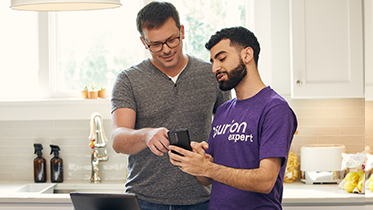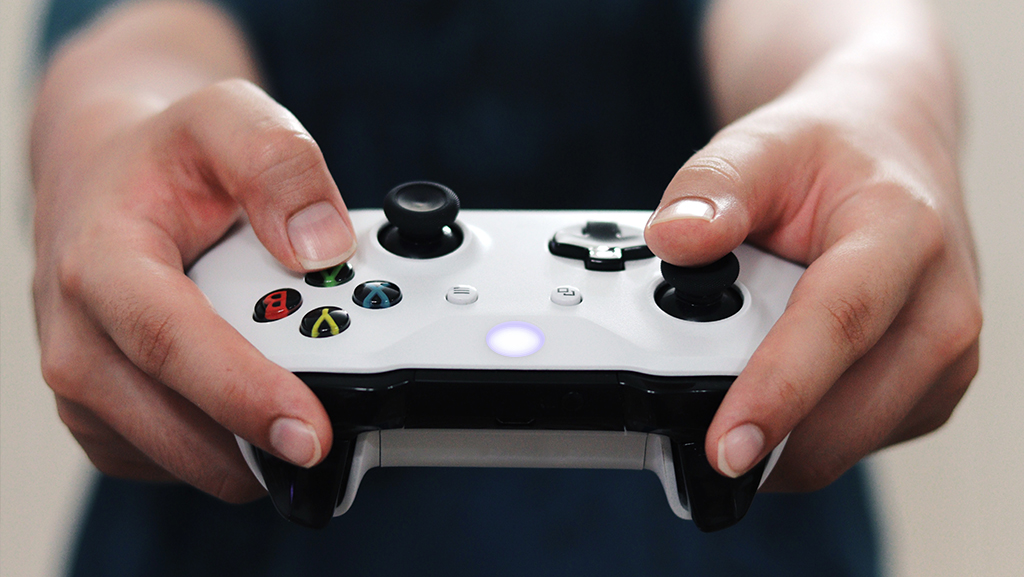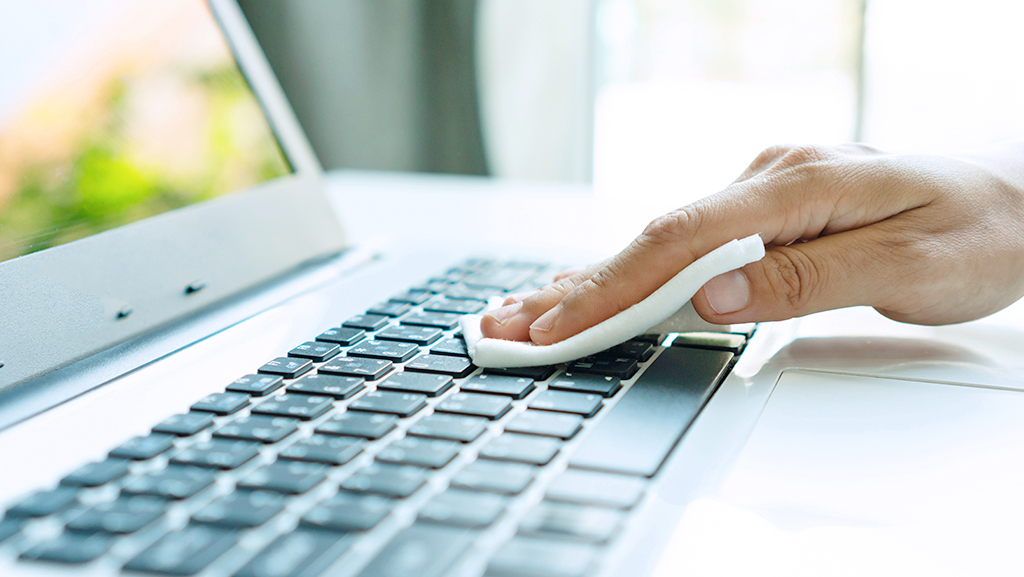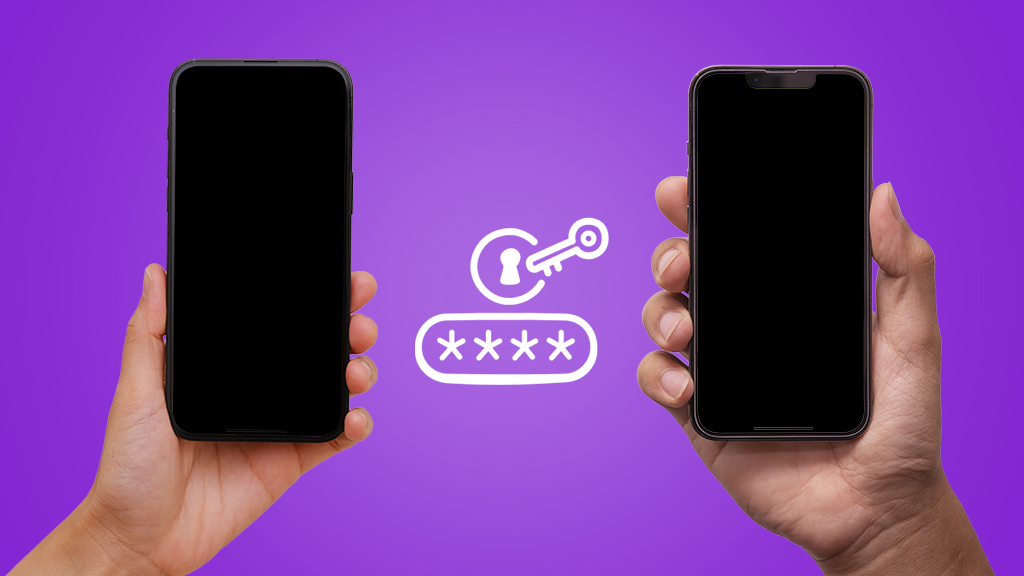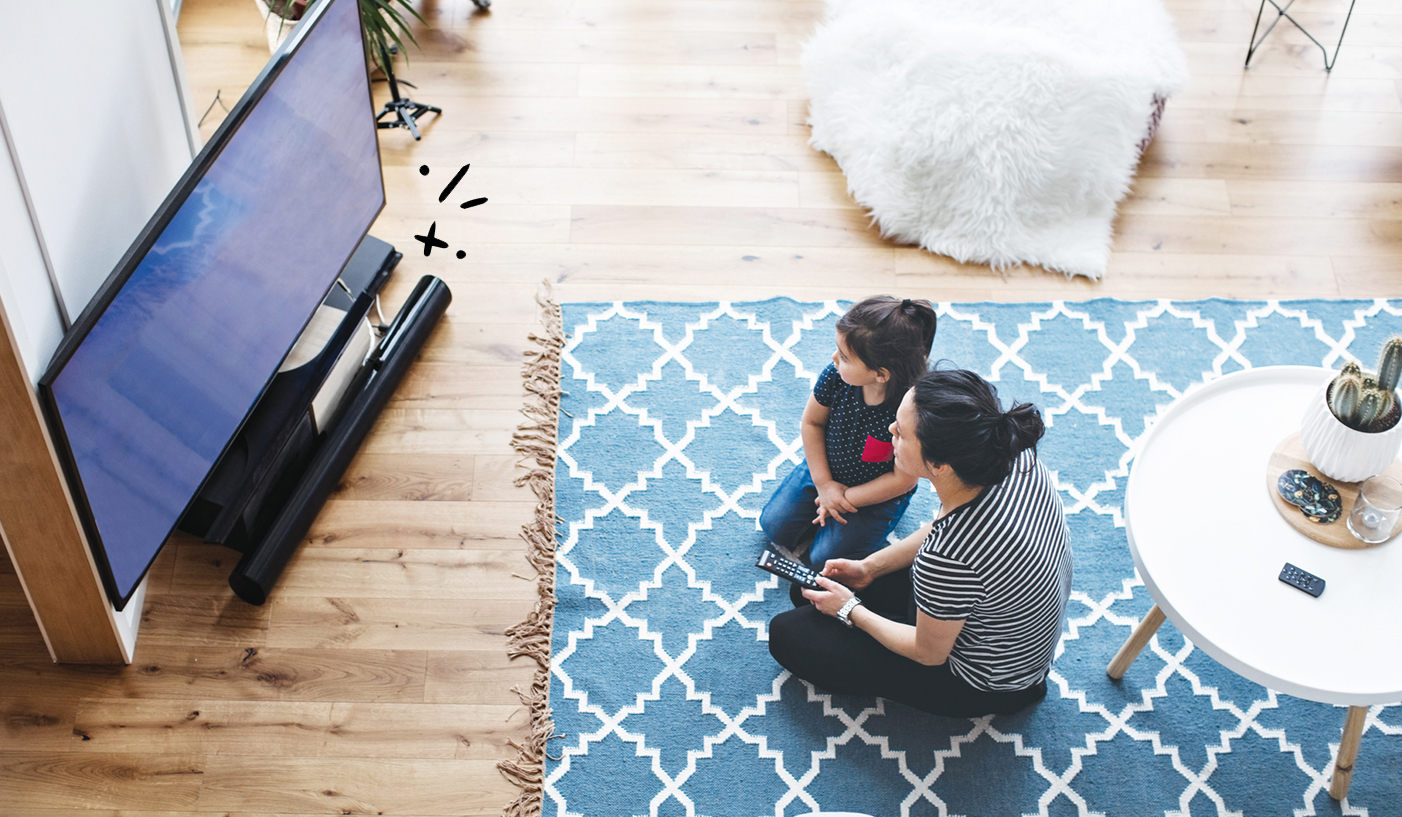Smart home technology can be life-changing, especially if you have a disability. That's 61 million Americans, according to the Centers for Disease Control and Prevention.
From voice assistants to video doorbells, smart home technology can help people with disabilities become more independent and finish daily tasks, give them peace of mind, and otherwise improve their quality of life.
But with so many adaptive devices for people with disabilities on the market, which ones are among the most useful? We can help with that.
At Asurion, we don't just fix and protect your tech, we teach you about the tech that runs your world—from what to look for in a smart home hub to the best smart gadgets to protect your home while you're away. Here's our guide to smart technology that can assist with accessibility.
Smart thermostats
Smart thermostats not only help you reduce your energy consumption and lower your energy bills, they're also a convenient way to control the temperature in your home. Instead of manually adjusting a thermostat—which can be difficult for those who are physically disabled, blind, or have low vision—you can do so via an app or with a virtual assistant.
A smart thermostat connects to Wi-Fi and lets you create (and automate) a cooling and heating plan for your home based on your temperature preferences, daily schedule, and even the weather. It also allows family members and caretakers to check in from afar, making temperature adjustments if needed.

How smart is your home?
Calculate your smart devices, bust common myths, and explore tips from your neighborhood tech experts.
Smart blinds
Waking up to a bit of sunlight and warmth is a great way to start the day. And lowering the blinds can help you get to sleep at night. But for people with certain disabilities, opening and closing the blinds can be challenging.
Smart window shades do the work for you. Using a smartphone app, remote control, or a simple voice command, you can raise and lower the blinds, even set a schedule for them to open and close at specific times.
Smart locks
For people who are blind, have low vision, or are physically disabled, operating a door lock can be difficult. That's where smart locks come in. They're one of the best features of a connected home because they let you lock and unlock doors using a voice command, a fingerprint scanner, or an app. There's no need for a regular key, and there's no risk of losing one either.
Smart locks let you know anytime someone locks or unlocks the door, and they'll lock someone out if they try the wrong access code too many times. They can also generate unique digital keys for different people, making it easy for caregivers, delivery people, and housekeepers to stop by. And if you often forget to lock your door, you can set this device to automatically lock as soon as you get home or at a specific time each day.
To learn more about these connected devices, check out our guide to everything you need to know about smart locks.
Video doorbells
Smart video doorbells are especially helpful for people who are blind, have low vision, or have restricted mobility because they let you know when someone is coming or going from your home via smartphone alerts. No need to rush to the door. You can screen who's there using the video stream on your mobile devices or even talk to the visitor at the same time.
You also don't need to be at home to chat with your guest—you can be at the office or halfway around the world if you have an internet connection and your phone.
To learn more about using technology to feel safer at home, check out our guide to everything you need to know about smart home security systems.
Robotic vacuum cleaners
For people with disabilities (or those who just hate cleaning), these smart devices do the dirty work for you. Turn on your robot vacuum from your phone, let it loose, and poof, you'll have a (mostly) dust- and crumb-free home.
Smart vacuums are easy to use, and they work on most rugs, carpets, and hard floors. There are a range of options, from basic models that bump around your space to high-end ones that sweep, vacuum, and even empty their own dustbins. Keep in mind, a robot vacuum can't climb stairs, and stray items or tall obstacles—like laundry, power cords, shaggy rugs, and dark, nonreflective surfaces—can confuse the device.
These vacuums aren't quite as advanced as Rosie, the cleaning robot from The Jetsons, but they're close enough to make your everyday life a lot more convenient.
Tech is expensive. Protect it all.
Protect the devices your family loves and relies on with one simple plan. With Asurion Home+®, we cover your computers, TVs, tablets, premium headphones, smart devices, and so much more—plus, 24/7 live support for your tech care needs. Learn more about Asurion Home+® coverage and how you can get peace-of-mind electronics protection.

